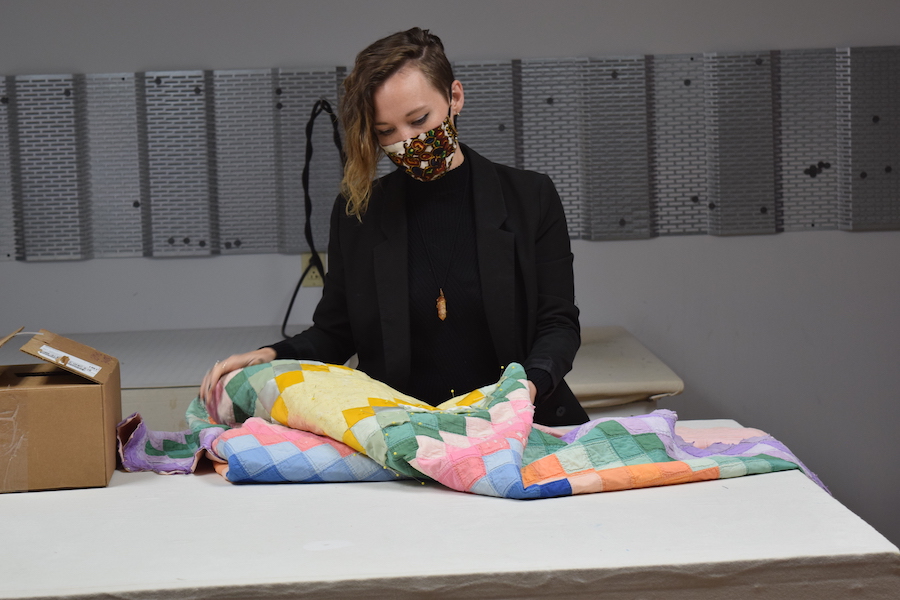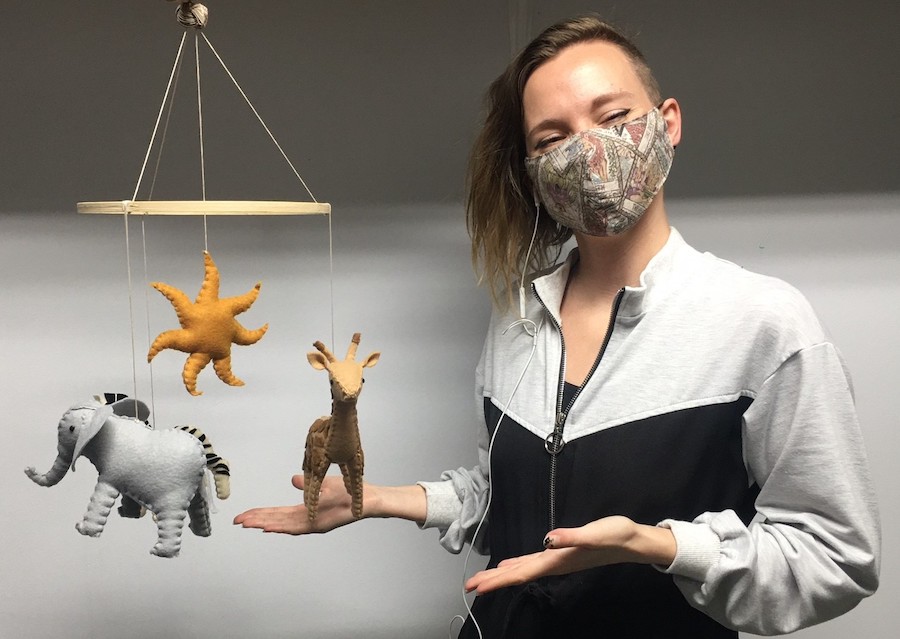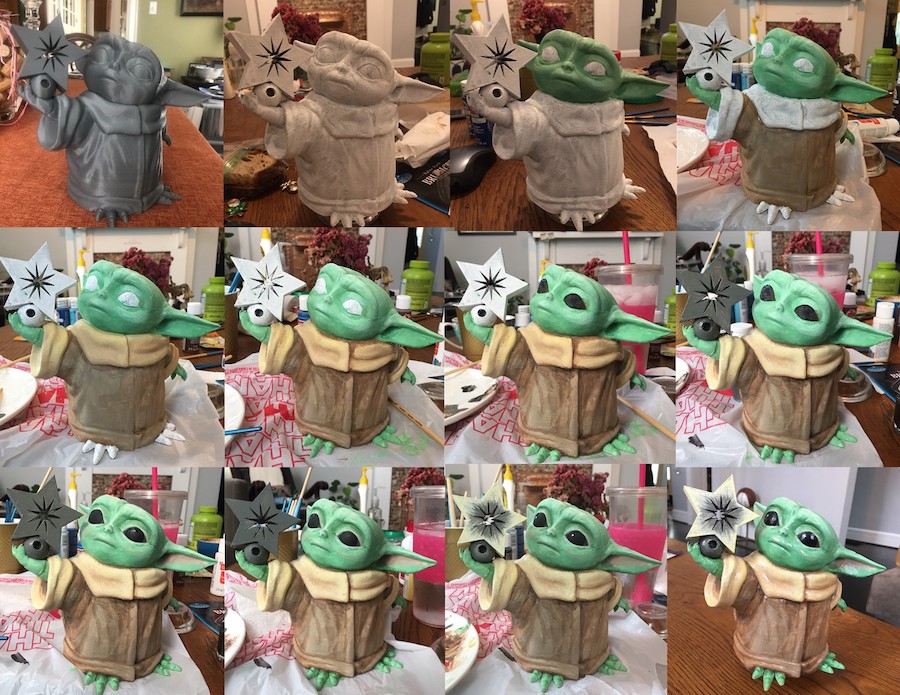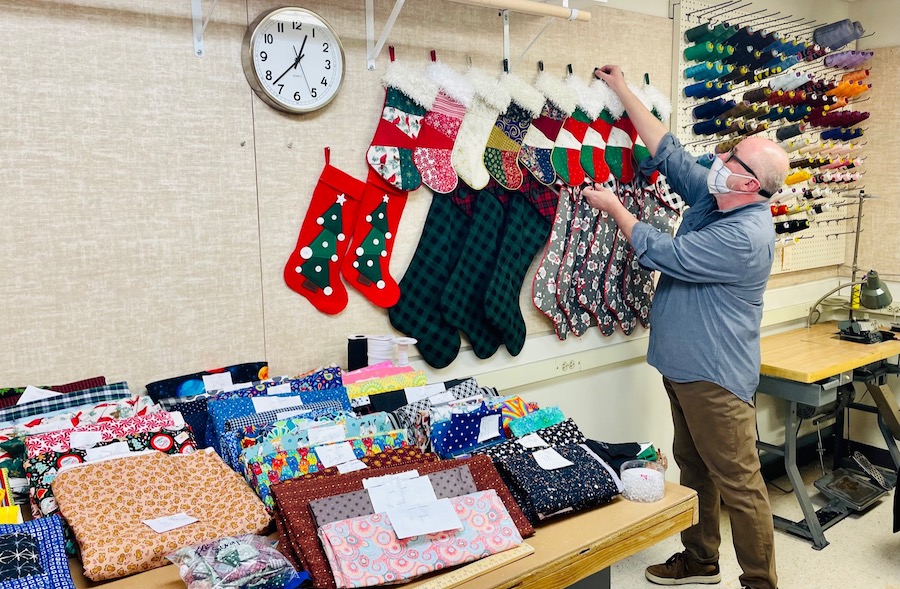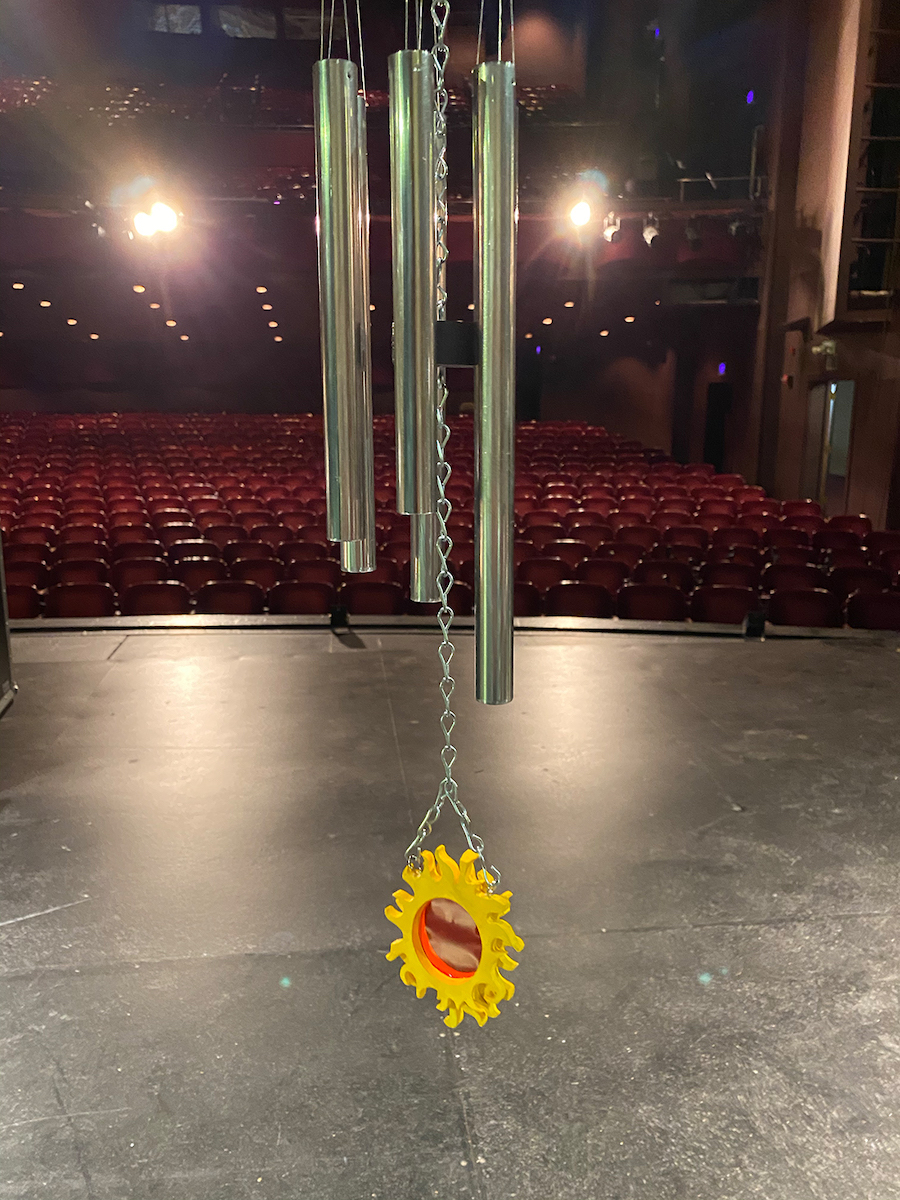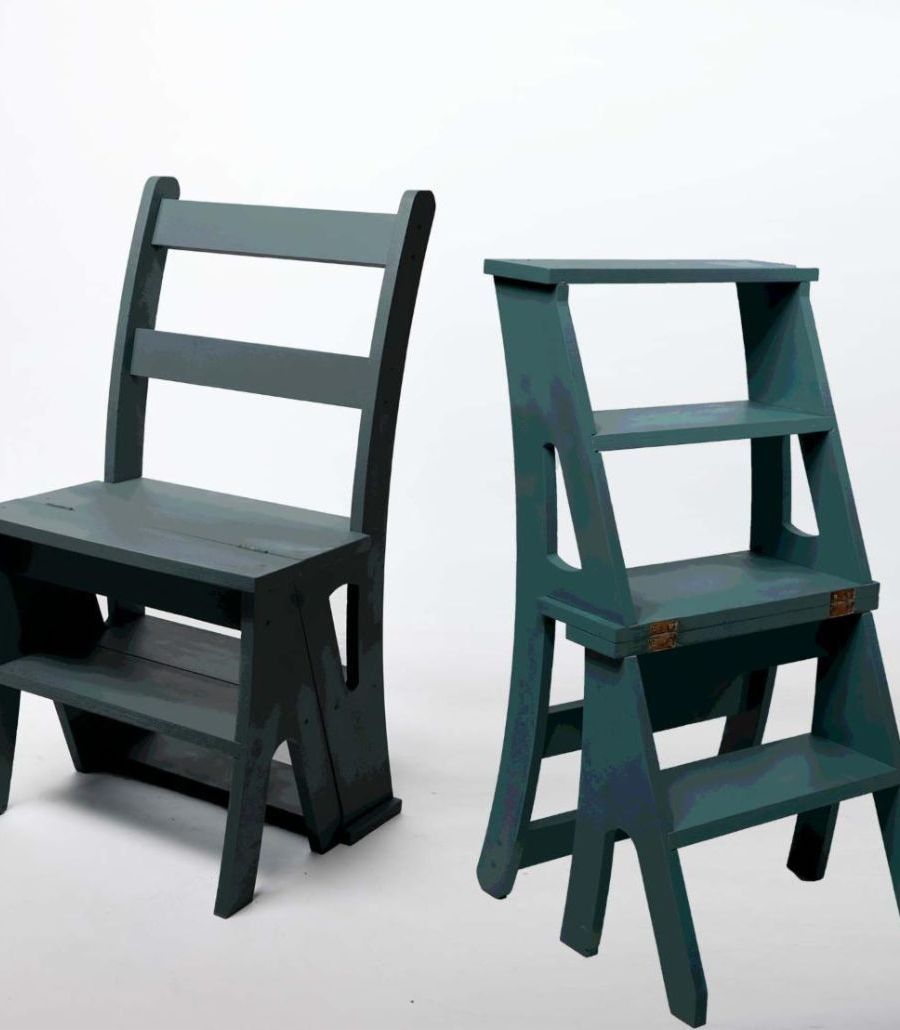Theatres may not be readying their annual in-person A Christmas Carol fêtes this year, but in place of the old traditions many are finding new ways to deliver holiday cheer and create connections with their communities. Across the country, costume and scenic shops—many of which have been busy crafting masks and PPE since the spring—have pivoted their home work stations into virtual elves’ workshops. Artist marketplaces are positioning themselves as one-stop shops for holiday gifting, with everything from custom construction projects to personalized performances. This new business model, fueled by the spirit of the season, has also allowed some theatres to bring back furloughed employees to help fulfill orders.
Guthrie Theater in Minneapolis is selling A Christmas Carol mementos in its shop, including “Bah Humbug!” mugs and handmade Bob Cratchit ornaments. The robust catalogue features work created by 27 local artists, including ceramicists, graphic designers, jewelry makers, and more. The mission of the store is to support the Twin Cities community, and to that end the company is selling custom products to support the Bridge for Youth organization. Guthrie is just one of many theatres offering some hope for the holidays.
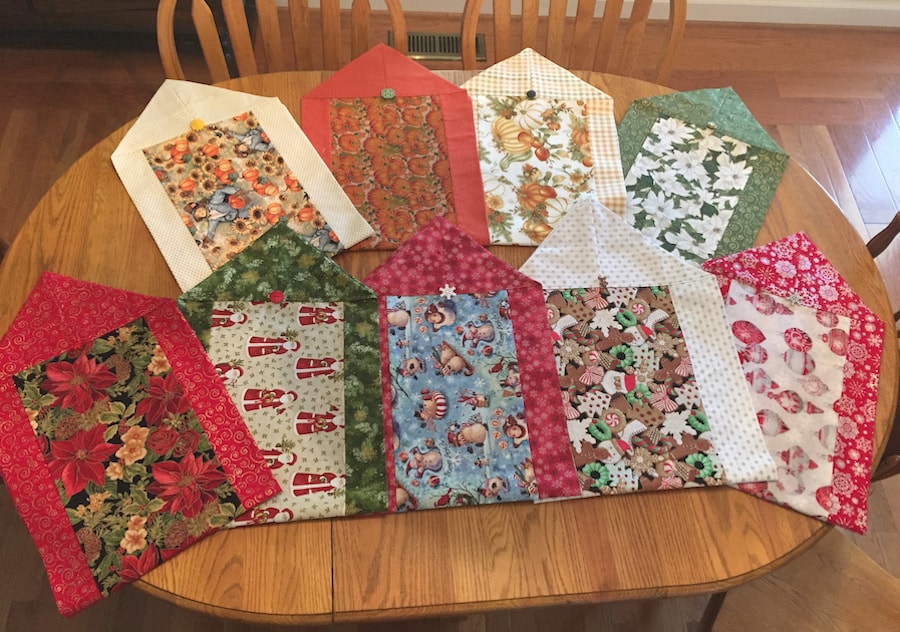
Arena Stage in Washington, D.C., started planning for its Artists Marketplace soon after the pandemic paused its live productions, and in recent months it has grown into a holiday destination.
“I realized that artists still exist and audiences still exist, and the only thing that’s broken is the delivery system,” says Seema Sueko (she/her), Arena’s deputy artistic director. Along with artistic director Molly Smith, Sueko launched a platform for the creatives on staff as well as artists affiliated with Arena Stage to share goods and services with the local community. Arena gets a cut of 15 percent of the profits, and encourages artists to set price points accordingly. Since launching in June, the Artists Marketplace has sold more than 200 pieces of art, greetings, and services.
Dawn Ursula (she/her), a D.C.-based actor, has been delivering personalized messages a la Cameo for the Artists Marketplace. “I created it on a hope and a whim that it would be something people would be interested in,” says Ursula. Her hunch was correct: Recent messages she’s delivered have included an affirmation video delivered to a teen fan and a note of encouragement sent from one spouse to another to help bear the new work-from-home reality. “The fact that new people are letting me into their personal lives and trusting me in that way—the ripple effect of that has been more than I expected,” says Ursula.
The ripple effect runs through all the participating artists who share their offstage talents with the community. Fight choreographer David Leong, who comes from a long line of landscape artists, has been offering landscape design through the platform. Scenic designer Viveca Gardiner has been teaching juggling lessons to corporations. Actor John Austin has been teaching one-on-one chess lessons. Scenic designer David Gallo offers fellow parents an ingenious class on how to playfully plate kids’ food so that they’ll eat it. Costume designer Ivania Stack illustrates custom-designed sets of coasters.
These are just some of the myriad offerings through Artists Marketplace. “It is lovely to see all the variety of offerings and things that you might not expect that are available,” says Sueko.
The launch of the marketplace, which kicked off with a production meeting of sorts on Zoom, was a bright spot in an otherwise bleak year. “It was perhaps one of the most exciting days I’ve had in this pandemic, actually, because it felt like we had pivoted in a way that so embraced artistry, kept the art central, and also serves our communities,” says Sueko.
Hidden talents have also been discovered at Cincinnati Shakespeare Company, where the Shakes Makes market has been going full steam ahead to fulfill holiday wishes. The team of five in-house technicians and production staff, which has been crafting PPE for months, is now rising to the occasion of creating custom projects for the holidays.
“We’re all discovering new skills about each other,” says managing director Maddie Regan (she/her). “Projects range in size and type—honestly, people’s imaginations have become the limit.” The resident costume designer, Rainy Edwards, who Regan describes as a “felt wizard,” crafted a safari-themed mobile for a baby’s nursery complete with spinning zebras and elephants. It turns out the resident lighting designer Justen N. Locke has a knack for building furniture. The company’s creative content manager, Cal Harris, has been putting Photoshop skills to use with custom pet portraits that transform furry friends into Shakespearean characters.
For her part, Regan says, “People have discovered that I am a closeted painter.” She has used this skill to make Baby Yoda tree toppers, fashioned from paintings that have been 3-D-printed by a local craftsman. “It has actually kind of become a stress management tool,” she says with a laugh.
The venture has been lucrative too. While Regan notes that similar products can be procured through Amazon, it is heartening to see the community support the company by buying the local handmade goods. “Most people are willing to purchase through Shakes Makes and still add an incremental donation to support the art and the artists that are doing the creative work for them, and I think it’s really just been a lovely, symbiotic relationship between the community and our institution.”
The team of artists has taken on more than 100 projects since the summer, and the theatre plans to bring a few local artisans and makers from the community to offer their products through the company ahead of the holiday rush. Beyond the stocking stuffers and home goods offered, the scenic shop has had some big projects on the docket, including custom home bar installations and the buildout of a playground at a local women and children’s shelter.
“March was a hard month for us when we did have to let a lot of people go, but this has been the opportunity to start bringing people back,” says Regan. “Our industry comes from a place where we want to take care of and retain our people, and it’s really hard time to do that. I think that both the artists that are involved and the companies that are doing efforts like this—it just speaks to their resilience and their commitment to the people in the community.”
Commitment to the community is top of mind for Pioneer Theatre Company in Salt Lake City. To date, the company has been able to bring back 17 employees who were furloughed because of the pandemic, and has contracted a number of artists who usually appear in the company’s holiday fare to be part of virtual works this season. “Our bread and butter, our wheelhouse, really is live performance,” says managing director Chris Massimine (he/him). But, as they’re not doing that now, findings to “retain the people who make that happen” has been a priority.
Adds artistic director Karen Azenberg (she/her), “Theatres are doing what they do to survive, but it is these artists and guest artists that we all rely on that are way at the bottom of the list right now. Being able to go back to work in some way, shape, or form is critical.”
The company’s market, called Second Act, repurposes costume pieces, retired props, and building materials from the theatre’s “treasure trove” of storage units. The team of artisans put to use a plethora of steel in the scene shop, which was crafted into spider-shaped candelabras for Halloween and welded into reindeer candle holders for the holidays. Backdrops from past productions have been repurposed into lunch sacks and tote bags, and even set pieces have found new life as tabletop games of Jenga and tic-tac-toe. Barrels from the company’s Les Misérables have been fashioned into wine racks. Sheet music has been folded into origami ornaments, and recycled light plots and ground plans have been turned into tabletop Christmas trees.
“[The market] gives us a bit of a creative outlet, at a time when we are not able to do the creativity we normally do,” says Azenberg, who adds that she is continually impressed with artisans’ inventive ideas. One of her favorites is a replica of the company’s most-used set element for period shows: a step ladder that folds into a library chair.
“It’s all handmade, all custom-made, and it’s owning a piece of theatre history,” says Massimine. “It’s also a way to help support the community, to help stimulate the economy, and make sure we can get people to work. It is helping a lot, because it doesn’t just impact us—it impacts the local businesses who need to purchase masks, and it impacts the tourist industry.”
While the company’s catalogue has grown, PTC continues its mask-making efforts with updated designs featuring different fabrics from costumes. “We have a couple of very devoted subscribers who order masks every couple of weeks,” says Azenberg. One new addition is a 2020 mask that comes inside an ornament, which will serve as a useful item now and a keepsake to hang on a Christmas tree for years to come.
Looking ahead, the company plans to find new ways to repurpose its back stock of materials for a Valentine’s Day-themed market in the new year. “Despite this pandemic, we’re pulling against all odds and just moving forward,” says Massimine.
In a post-pandemic world, some theatres are imagining that these artist markets might continue in some capacity to help support artists and technicians.
“We can be the pass-through organization for over-hire artisans and technicians who are between work on a regular basis if this demand still exists on the other side,” says Cincinnati Shakespeare’s Regan. “I do see a path where it can kind of be a conduit for continued bridged compensation for people when they’re between gigs. Right now everybody’s just between a gig, right? This is a tool to help bridge that gap.”
To help build more bridges across the field, Arena Stage has created a toolkit for other theatres interested in launching a market of their own. “We recognize that theatres have such profound connections with their own audiences and deep relationships with artists as well,” says Arena Stage’s Sueko. “This is a network that can be utilized and optimized in this time even without meeting and gathering in a space, and so we wanted other theatres to do the same to be able to support artists all across our nation.” Interested theatres can reach out to marketplace@arenastage.org for more information.
Allison Considine (she/her) is senior editor of American Theatre. aconsidine@tcg.org

